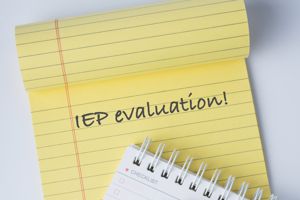UPDATE on Your Child’s Academic Rights!

The United States Supreme Court has just rejected the argument that achieving the minimum academic progress for a student meets the requirement to provide a free and appropriate education. This is a ruling in favor of a student affected by autism and ADHD, whose academic needs, appropriate to his disability, were not effectively met by his public school district.
As we shared with you in CHADD Advocates before the Supreme Court for Students with Disabilities, CHADD had signed a “friend of the court” brief to support the student’s family, who argued he and other students with disabilities should receive an education that provides a substantial benefit through an IEP.
This ruling reverses the lower-court ruling that the school district could provide the minimum and still meet the legal requirement. It will now be returned to the lower courts for further resolution, based on the Supreme Court’s opinion.
“When all is said and done, a student offered an educational program providing ‘merely more than de minimis’ progress from year to year can hardly be said to have been offered an education at all,” writes Chief Justice John Roberts, offering the court’s opinion. “The IDEA demands more. The adequacy of a given IEP turns on the unique circumstances of the child for whom it was created.”
This decision has the potential to affect all students affected by a disability, including ADHD, attending public schools in the United States.
You can read more about this decision in The Supreme Court Rules In Favor Of A Special Education Student. To download a copy of the Supreme Court’s decision, visit Endrew F. v. Douglas County School District.
***
Are you concerned about what is involved in an academic evaluation for your child? The evaluation is a necessary step in getting academic and/or related accommodations for your child affected by ADHD. The process seeks to discover your child’s strengths in addition to identifying areas where he is struggling.
Missy Alexander of Parents’ Place of Maryland, an affiliate of Parent Technical Assistance Centers, works with parents while their children are receiving an evaluation. She discusses the academic evaluation process in our Ask the Expert series webcast Academic Evaluation—What Parents Need to Know.
Academic evaluations are used to determine whether a child is eligible to receive services under IDEA or Section 504.
Academic evaluations are conducted in order “to determine whether a child has a disability and then to determine what special education services a child might need,” Ms. Alexander says. “Typically, when we have meetings we’re talking about what a child can’t do and the difficulties he’s having. But evaluations talk about the child’s strengths, too. It’s so we can make informed decisions as parents.”
Students affected by ADHD also have a 50 percent likelihood of having a co-occurring learning disability, Ms. Alexander says. An academic evaluation will take this into account and identify if your child has a learning disability and suggest services, in addition to those related to ADHD.
“The child is to be assessed in all areas related to the suspected disability,” she says.
You have rights in regard to getting an evaluation for your child. The Office of Civil Rights issued guidance in July 2016, in its Dear Colleague Letter on Obligations to Students With ADHD. Under Section 504, schools must identify and conduct an evaluation of any student who may need special education or related services because of a disability, whether or not the student has received a diagnosis of disability. Concern regarding the potential need for services may be raised by either parents or a teacher. The evaluation must address specific and related areas of educational need, even if the students do not fit into one suspected disability category or if they fit into multiple disability categories. If the school denies a parent’s request for a Section 504 evaluation, the school must inform the parent of procedural safeguard rights included in the Section 504 regulations.
Are you ready to learn more about the evaluation processes? Watch Academic Evaluations—What Parents Need to Know.
Get the informational slides now.
What has your experience been in seeking an academic evaluation for your child?
